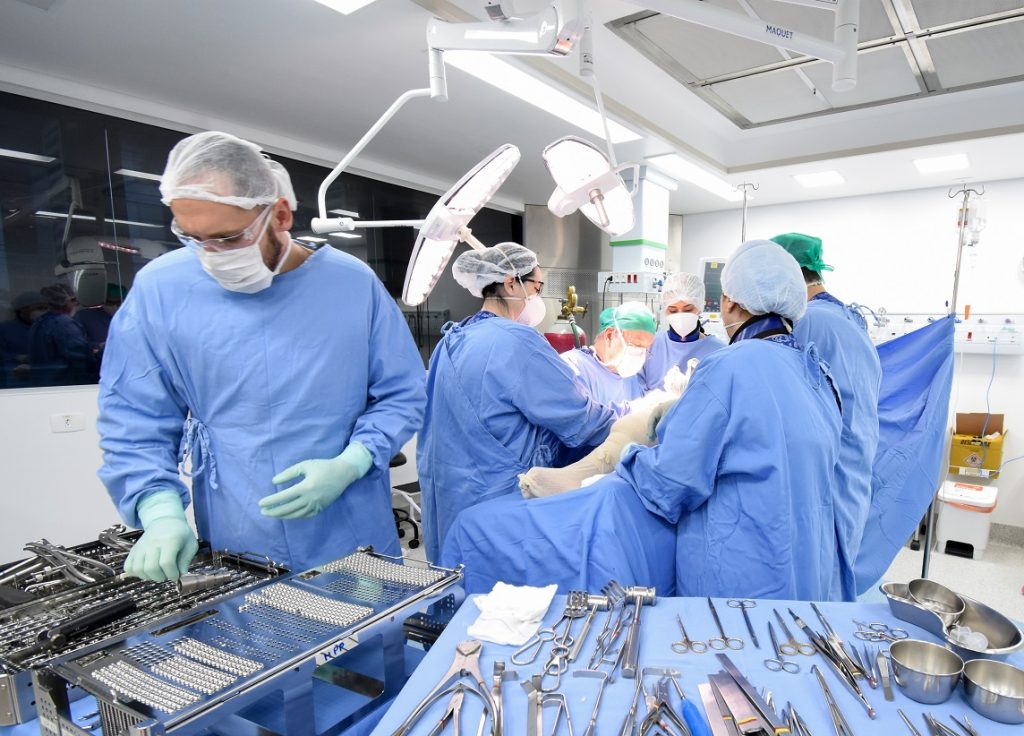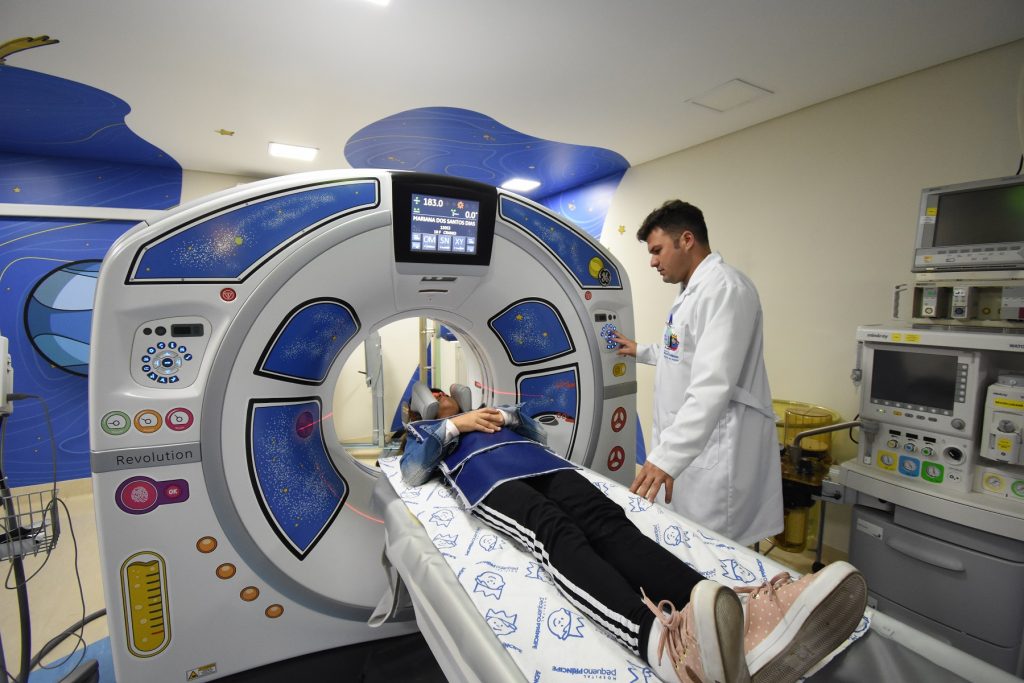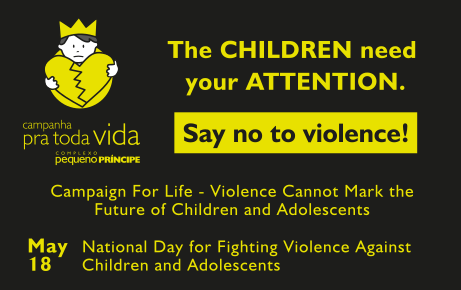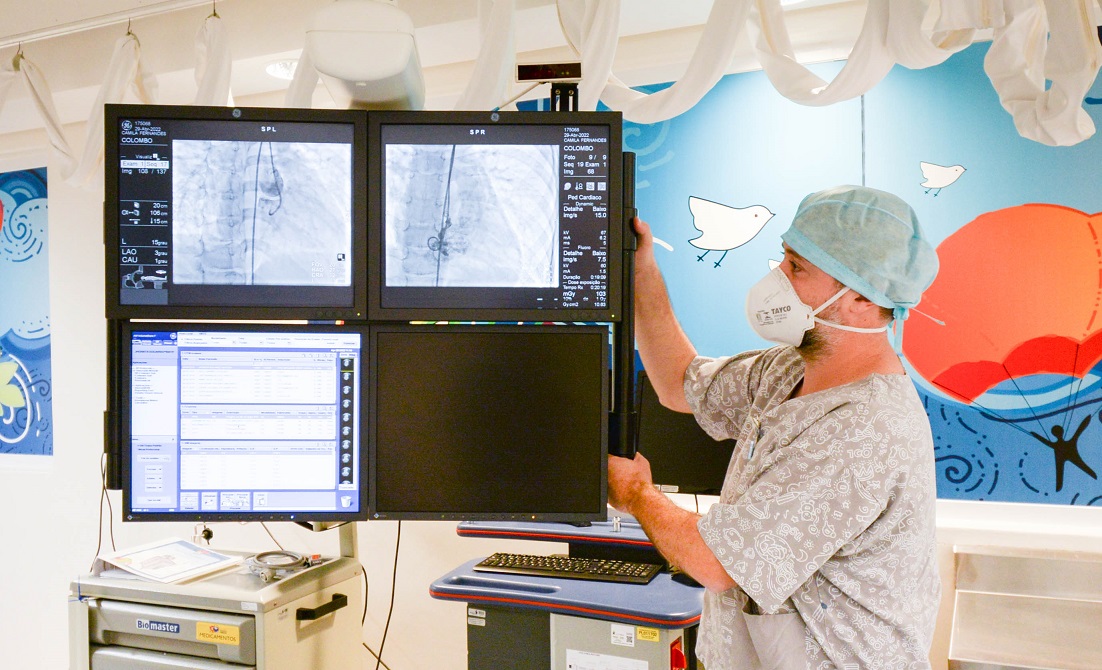Campaign sheds light on the underfunding and Brazilian crisis of charitable hospitals
Deficit in healthcare reached US$ 10.4 million at the Pequeno Príncipe in 2021, regardless of the fundraising; cancellation of appointments and surgeries because of the COVID-19 and lack of readjustment on the services’ payments are some of the reasons

Year after year, the financial difficulties faced by charitable and benevolent hospitals worsen in Brazil. Since they cover 70% of all high-complexity care provided by the Public Health System (SUS, abbreviation in Portuguese) in the country, these institutions saw their financial situation become even more jeopardized with the pandemic and the return of inflation. In the last six years, 315 charitable hospitals have closed their doors, reducing 7,000 SUS beds. In pediatrics, more than 9,000 beds were closed.
At the Pequeno Príncipe, the largest exclusively pediatric hospital in Brazil, the scenario is no different. In 2021, the financial deficit in assistance faced a major increase, from a historical average of US$ 6 million per year to US$ 10.4 million – regardless of the fundraising –, that is, a growth of around 70%. “It is a very worrying scenario, which we have been able to face with the support of society,” explains the Pequeno Príncipe Complex’s corporate director, José Álvaro da Silva Carneiro.
Due to this reality that is recurrent in all institutions that treat patients through the SUS, the Confederation of Charitable and Benevolent Hospitals (CMB, abbreviation in Portuguese) and the Federation of Charitable and Benevolent Hospitals of the State of Paraná (Femipa, in Portuguese) launched the national campaign “Chega de Silêncio (No More Silence) – managers and health professionals break the silence to expose the crisis of the largest hospital network in the SUS”.
The movement aims to acquaint the size of the challenges that health institutions face in their relationship with the SUS, without receiving the necessary financial resources to meet the costs of services provided. The CMB highlights that, if there are no immediate, consistent, subsistence policies for these hospitals, their doors will hardly remain open.

In order to avoid lack of assistance to the population, charitable and benevolent hospitals require the allocation of resources at the amount of US$ 3.44 billion, annually, on an urgent basis, as the only alternative for accepting the labor obligations arising from Bill 2564/20, which establishes the national base salary for nurses, technicians and nursing assistants and midwives, as well as for the essential adjustment to economic and financial balance in the relationship with the SUS.
The financial relation of hospitals with SUS is increasingly deficient and accumulates a debt of more than US$ 4 billion, which also caused the scrapping of physical and technological structures, a scenario that was worsened during the COVID-19 pandemic. The acquisition of materials and medicines at very high prices, in addition to inflation, entail enormous costs for institutions.
In Paraná, Femipa is formed by a total of 71 charitable and benevolent hospitals. Together, they offer 11,899 beds to the SUS, 1,178 of which are in the intensive care units (ICU). To get an idea of the representativeness of this figure, 13,725 inpatient beds and 2,205 ICU are available to the SUS in the whole state of Paraná.
Support from society
For Pequeno Príncipe, the support from society has been of utmost importance to face this unfavorable scenario. “With the support of companies and individuals, we managed to keep our technology park and our structure up to date, we guarantee the continuous training of our teams, we develop humanization actions. Together, these initiatives translate into excellence in service, which generates more opportunities for life and health,” emphasizes the Hospital’s executive director, Ety Cristina Forte Carneiro.
There are several ways to support Pequeno Príncipe Hospital. If you or your company are interested in contributing, please contact us at the following address: carolina.fossati@hpp.org.br.
Check out some facts about the health scenario in Brazil:
• Since 1994, the SUS rates table had an average adjustment of 93.77%, while cooking gas was adjusted by 2,415.94%, INPC (Price Index) by 636.07% and minimum wage by 1,597.79%.
• The financial deficit resulting from services provided by the SUS is of US$ 2.18 billion per year.
• In Brazil, benevolent and charitable hospitals provide 195,000 beds, 26,000 of which are in the ICU.
• Between 2010 and 2019, 15,944 pediatric beds were closed, 13,800 of which were made available to the SUS.
• Charitable hospitals are responsible for 70% of highly complex procedures performed through the SUS.
• Charitable and benevolent hospitals handle 5 million admissions, 1.7 million surgeries, and 280 million visits a year.
• In the last six years, 315 charitable hospitals closed their doors, reducing 7,000 SUS beds. In pediatrics, more than 9,000 beds were closed.
• More than 3 million people, with direct and/or indirect employment, are economically dependent on charitable hospitals.
Click below and get to know the current scenario of the charitable hospitals in Brazil.
More
Pequeno Príncipe assisted in more than 600 cases of violence in 2021
The institution upholds a campaign that seeks to contribute to early identification of cases and the end of violence against children and adolescents
The Research Institute contributes to WHO Project
The study, supported by Pequeno Príncipe Gala, aims to establish reference levels of radiation during exams, to be adopted in Latin America and Caribbean hospitals









